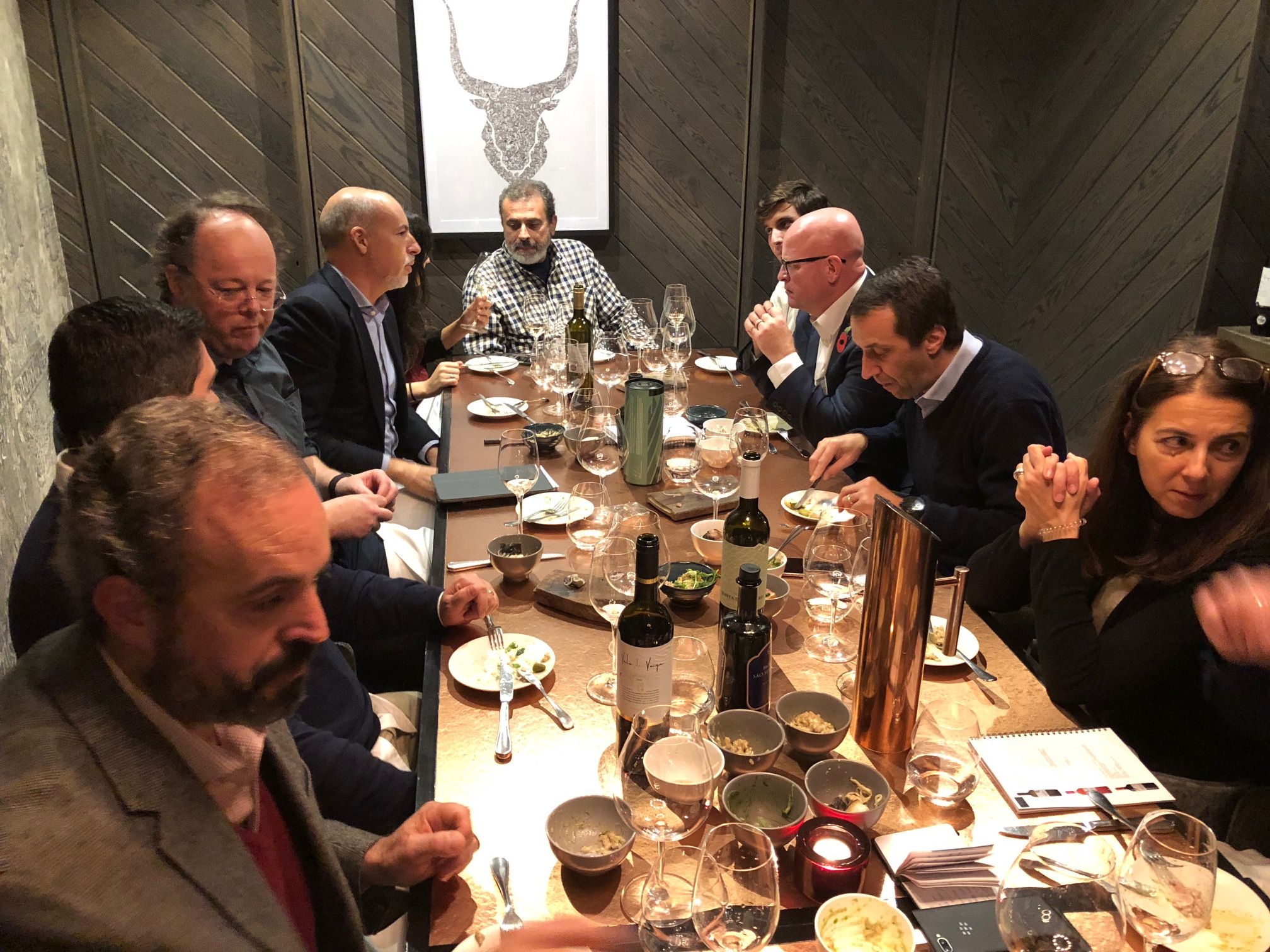Part two of The Buyer’s analysis of what UK trade experts, buyers, importers and wine critics think is the best approach for Soul Wines, a collective of Portuguese producers from the Douro Valley, to take when trying to get listings in the UK’s on-trade.
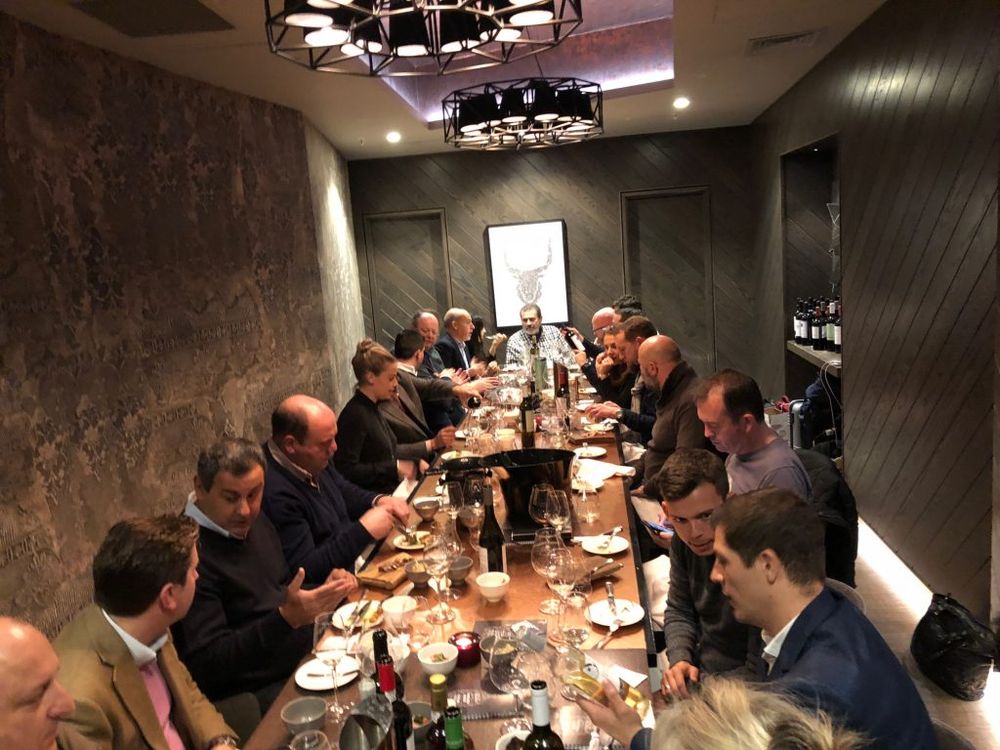
The Douro Valley debate was a chance for key UK buyers and wine consultants to assess their opportunities for the UK market
The good news for Portugal is that the door to the UK wine market is very much open. The success of neighbouring Spain in the last two to three years has shown a real appetite amongst consumers for new, interesting and different grape varieties. Albarinos, Verdejos and Godellos, almost unheard of five years ago, are all now quite common on most commercial and mainstream restaurant wine lists.
Portugal’s equivalents might be more of a tongue twister, but the opportunity is certainly there, particularly for the fresh, easy to drink, refreshing wines with acidity, good fruit and mouth feel.
That was the opinion of our panel of trade experts and buyers who sat down with a group of Portuguese winemakers from the Douro Valley, who make up the Soul Wines project, to offer advice and support on how best to target the UK with their respective wines.
A trade panel line up that included:
- John Graves, Bibendum’s on-trade channel wine director
- Peter McCombie MW, restaurant and wine consultant
- Alistair Morrell, former supermarket buyer turned management and wine consultant with his own agency, The Wine Inspector.
- Harry Hunt, a British winemaker making wine in Andulucia in Spain as part of his negociant business, Tierra Hermosa. He is also one of three UK winemakers and distributors, The Three Amigos, that are offering wines to UK buyers from all over Spain.
- Lenart Cernelic, wine manager at M Restaurants Victoria.
- Ben Appleton, business development director for specialist Portuguese wine importers, Portuguese Story.
- Jamie Goode, wine critic and writer, with his own site, www.wineanorak.com
In part one of our review of the debate we focused in on what advice the respective panel members had for the Douro producers on how best to approach the UK market. Rather than work on their own, Soul Wines allows the producers to come together and share their experiences and collective strength to make a bigger, better and more productive image of the Douro wine region.
As well as last month’s dedicated trade tasting the Soul Wines group also teamed up with The Buyer to host a business roundtable and tasting where the focus was not just on showcasing their wines, but the opportunity for the producers to hear from leading trade experts operating in different channels and sectors of the UK wine industry about how they would approach the UK market.
Here we turn the spotlight back on Portugal itself and, in particular, the Douro Valley from where the Soul Wines members are from.
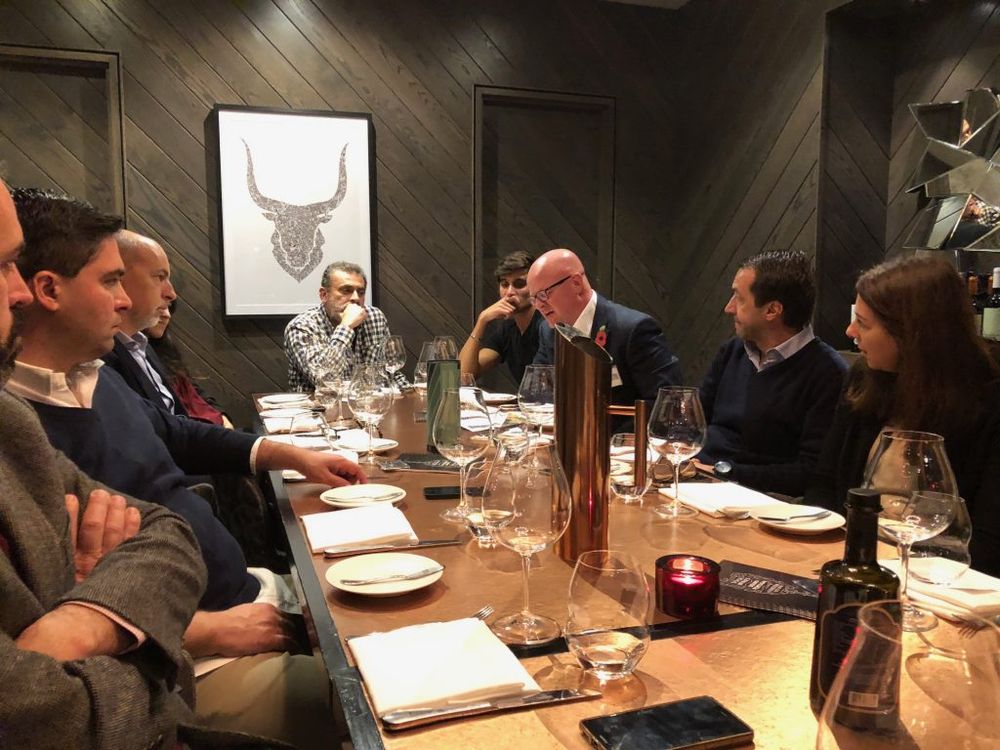
Alistair Morrell says the Douro has so “many assets” it’s more a case of deciding which ones are right to promote in the UK
Diversity is key
What really stands out for Portugal and the Douro in the current trading climate, according to our panel, is the diversity it can offer in terms of wine styles and grape varieties. At a time when sommeliers and ambitious wine consumers are looking for something that is new and different, Portugal is well placed to satisfy their needs. And if a wine region as well known and respected as the Douro Valley can offer a united approach then it makes it even more attractive to busy and distracted UK buyers.
Ben Appleton at Portuguese Story said the Duoro Valley, on its own, has “more grape varieties to be a country on its own”.
But then “diversity can be both good and bad,” warned Peter McCombie MW. “It’s probably why Portugal has more in common with Italy than Spain. Buyers will say they are looking for diversity, but they are also looking for familiarity and things that their diners can latch onto.”
So offering blends that combine a well known variety with two more obscure ones can be the way to go, added McCombie.
Hunt of Spain’s Tierra Hermosa felt the time was right for Portugal. “A major supermarket buyer has told me that Portugal will be the next big thing next year. It’s like Spain could be passing the baton to Portugal. It’s on the cusp,” he added.
The Douro opportunity
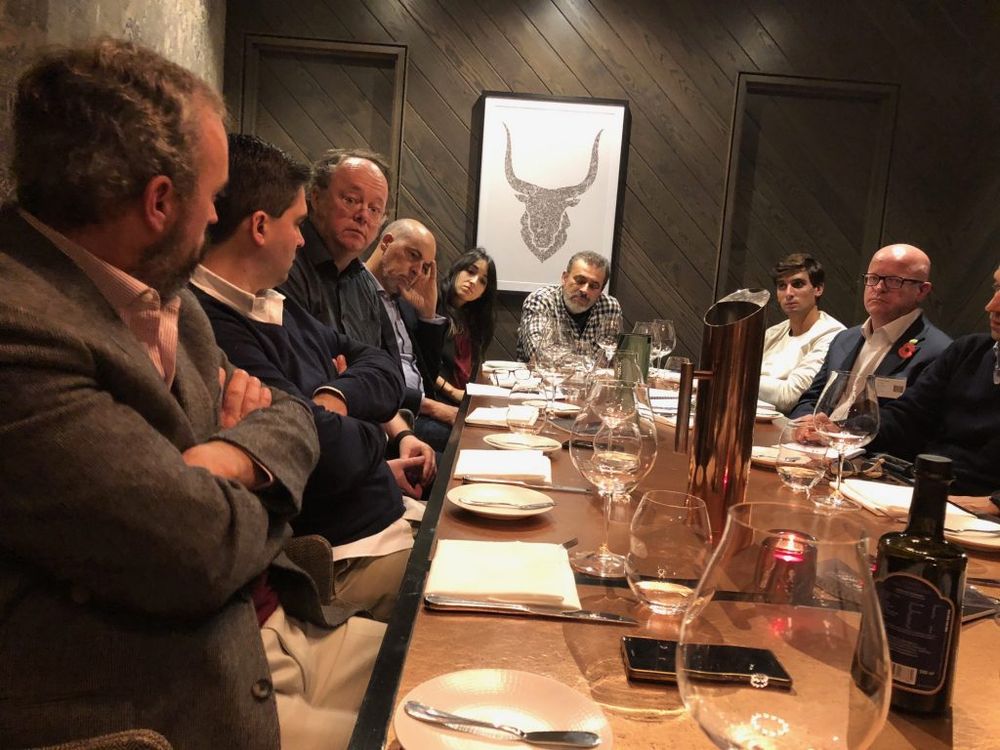
Bibendum’s John Graves said there was a real opportunity for Douro wines – but at the right price point
John Graves at Bibendum was already a big fan of Douro wines and the selection at the debate simply reinforced that. But he did think there was an issue around consistency in pricing and that some producers were looking at too high a price for the UK. “It’s finding that balance between quality and price, but that needs to be at all price levels from entry point up to fine wines.”
He said the sweet spot for the Douro would be around £25 to £35 on a restaurant wine list.
Lenart Cernelic at M Restaurant agreed. It would also be helpful if there was more clarity about what sector of the market Douro wines were being aimed at. “I think you have to decide where you want to be and that the mass majority of wines need to be at that price point. There are too many fluctuations in price. It’s confusing for the consumer.”
Capitalising on tourism
A big opportunity for Portugal and the Douro Valley is how far it can be seen as a tourist destination, added Cernelic. It is something he has seen with other countries, particularly South Africa which he sells a great deal of as so many of his customers have recently been there. The same for Spain and Italy, compared to Germany and Austria. “Australia is a much harder sell for the same reasons as so few people go there on holiday,” he said.
But with Porto becoming such a major tourist destination the opportunity must be there to open up the Douro to more people.
Right channel, right wine
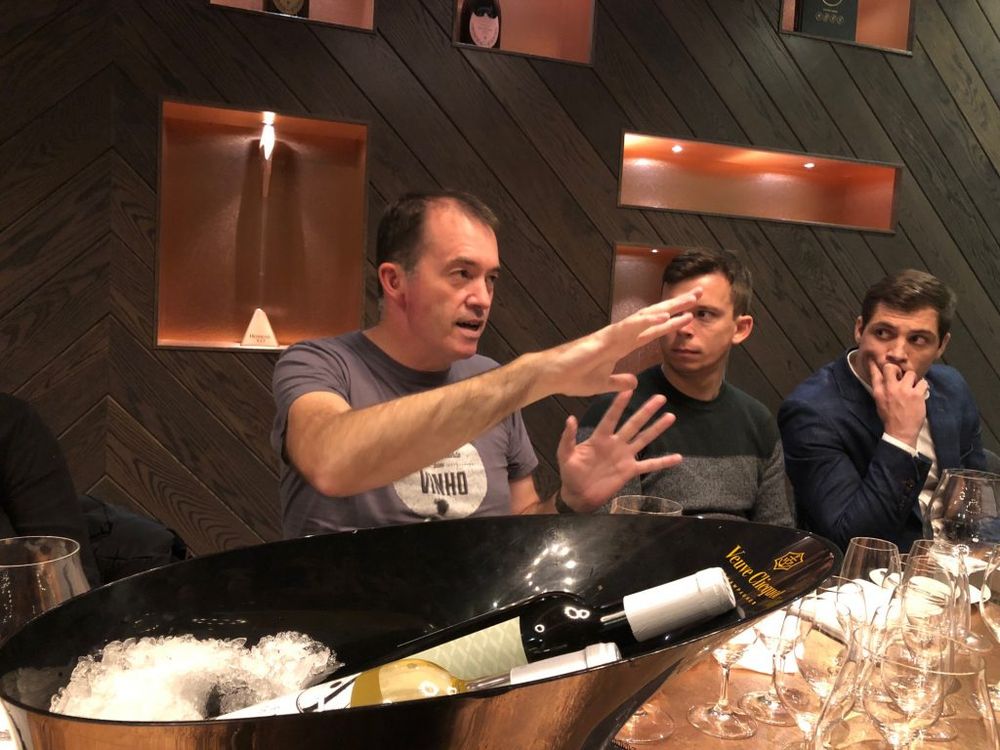
Wine critic and writer Jamie Goode says it is important to choose the right channel and importer for your wines
Jamie Goode urged the producers to look closely at what channel and sectors of the UK market were best suited to their style of wines and price point. He is confident, for example, that there is a market for super premium Portuguese and Douro wines in the UK, it’s just that the producers will have to work hard with the right partners to find it. “You really have to segment the UK into the right channel for your wines.”
Carlos Macedo e Cunha, of Portugal Premium Wines, agreed: “They are not easy to find but we are seeing more premium Portuguese wines in the UK. It also reflects the overall increase in the quality and the fact more people are looking out for them,” he said. “But it will take a long time.”
Goode, though, is confident. “The revolution has started,” he said pointing to the quality of the Douro wines in the Soul Wines group. “It’s just not wise to come to the UK with a €50 wine from your first vintage.”
He urged the producers to concentrate on the success stories. Look at the Portugueseand Douro wineries that are already doing well in the UK and see how they have gone about it.
Cernelic believes a premium region like the Douro Valley has a better chance at the higher level than more mainstream areas such as Vinho Verde. “You would struggle to sell a Vinho Verde at €40 a bottle, but I could see selling a Douro wine for €200 because of the perception of the region.”
Which is very much where the halo effect from Port comes in, he added.
Alistair Morrell said the Douro had so many “great assets” going for it that it was important to work out the best communication strategy for your wine. “What is going to get people talking about you?”
He urged the producers to stand firm on their quality and price and be proud of what the Douro can achieve. Goode agreed: “The Douro is not about shifting units. It’s not a place where you make cheap wine.”
But with such a focus on price in the UK it can be a hard “obstacle” to get over, said Isabel Vieira, sales director for Bulas Wines: “We have high costs in order to make the quality wine that we do. “We’re also mostly small, family businesses, so, yes, it is going to be important to find the right importer.”
A compelling story
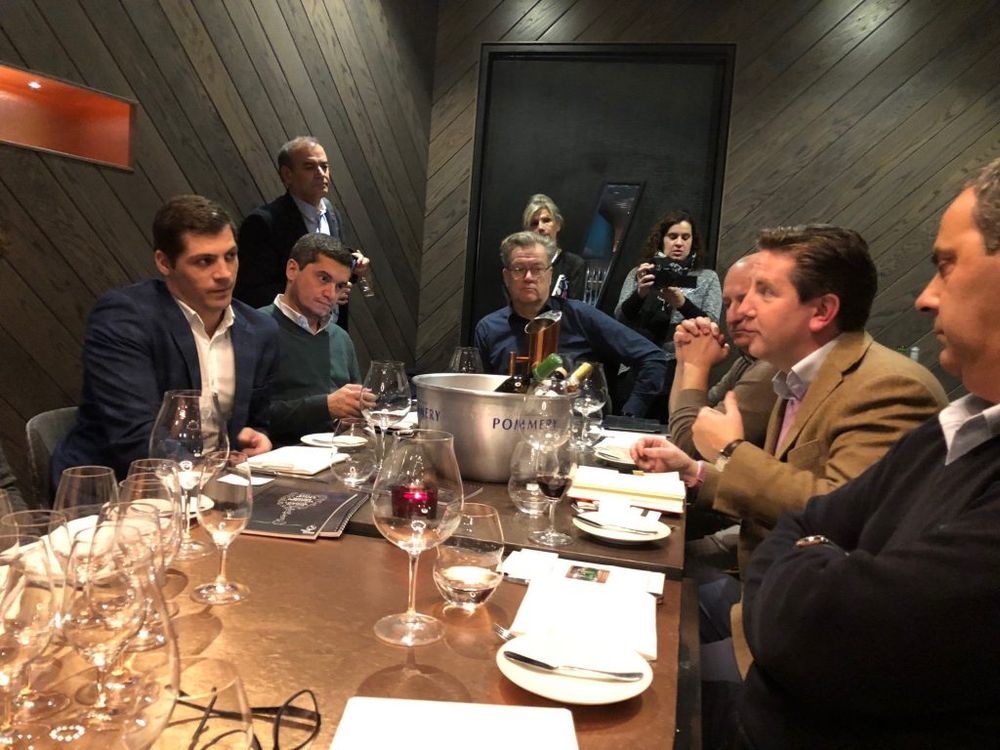
Winemaker Harry Hunt said it was important to think of the “compelling” reason why a buyer would want to list your wines
Harry Hunt said it all comes back to having that “compelling reason why someone would want to work with you”. He warned the producers that it would not be easy and that you have to be “resilient and be prepared to be pushed back”.
A key area for consideration with Portuguese wines is the labels and design. Although greatly improved in recent years it can be where some wines fall down, said Goode. “A label might be good for Portugal, but it won’t work here. Look at the segment you think your wines should be sold in and then look at the packaging of other wines there. Again that will be different whether it is a wine to be sold in a supermarket, or an independent, or if it is an orange or natural wine. Too often producers get too close to their wines and can’t see the problems.”
Goode pointed at the success UK importer and wine merchant, Nick Oakley, has had in adapting wines to suit the UK market, with different designs and packaging ideas as well as tweaks to the blends. “He gives them a much better chance of succeeding,” said Goode.
It’s certainly an area that Ben Appleton and Portuguese Story works a great deal on with its producers. “Ten years ago Portuguese wines tasted amazing, but did not have labels that worked on shelf. Things have changed now and there are lots of good, exciting labels out there.”
Goode urged the producers to go out into the UK market, to take a look at supermarket shelves, what pricing there is in independent wine merchants and see where their wines might fit in.
Ultimately it comes down to the styles of wine being offered the UK, said Graves. The perception in the past was that the Douro made big, alcoholic, extracted wines, whilst the reality now is that it also has the acidity and freshness levels that “we are all hankering after” that also comes through in its lighter red wines.
“There is more elegance and freshness in these wines,” he added. “It used to be like putting a boxing glove to your face. There is a deliciousness to these red wines. I am hugely impressed by them. The quality has blown me away.”
The Soul Wines Project
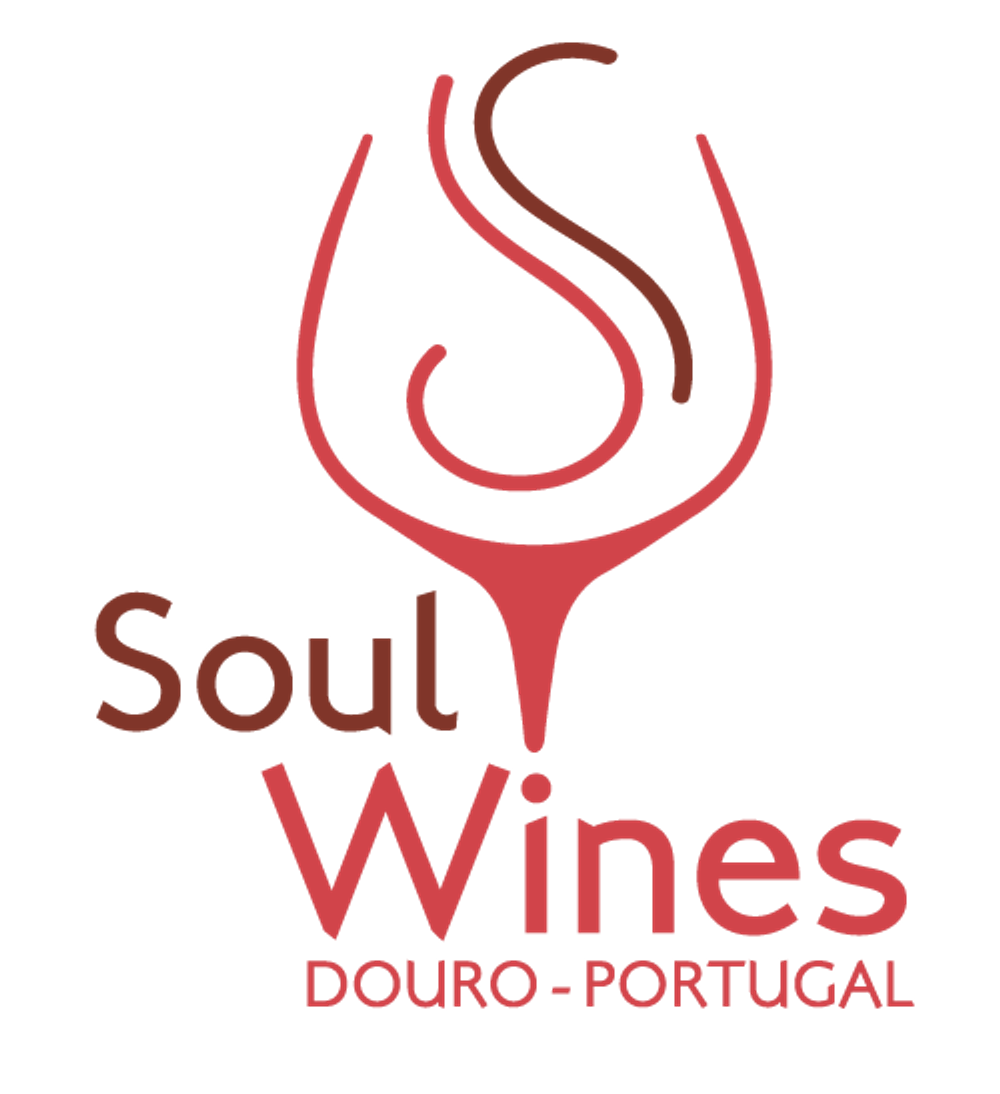
Soul Wines is an umbrella brand concept which brings together many producers, almost all coming from traditional Douro families. The project is co-financed with Portugal 2020 and promoted by NERVIR – Associação Empresarial – a Douro Valley business association, which over the years has developed activities in several foreign markets to promote the Douro and Port wines. The Soul Wine producers have for generations produced some of the best grapes and wines in the region, which were then sold to port wine exporting companies. It was only in 1986 that these producers were allowed to age and market Port Wine from the Douro Region themselves. Their wines are already on the domestic and international markets. The purpose of the project is to help them gain more visibility and traction.The producers choose the markets in which they would like to participate, according to their needs and strategies. Thus, not all producers are present in all markets where Soul Wines promotions take place.
Soul Wines’ Producers that took part in The Buyer debate
• Quinta dos Lagares
• Alves de Sousa
• PNC, Parceiros na Criação
• Odisseia
• Adega de Sabrosa – Vinhos Fernãode Magalhães
• Quinta do Mourão
• Quinta das Lamelas
• Vale da Veiga
• D’Origem
• Monte São Sebastião
• Coimbra de Mattos
• Vinhos de Favaios
• Bulas
- Thanks to M Victoria for hosting the event and creating bespoke dishes to pair with the Douro wines.
